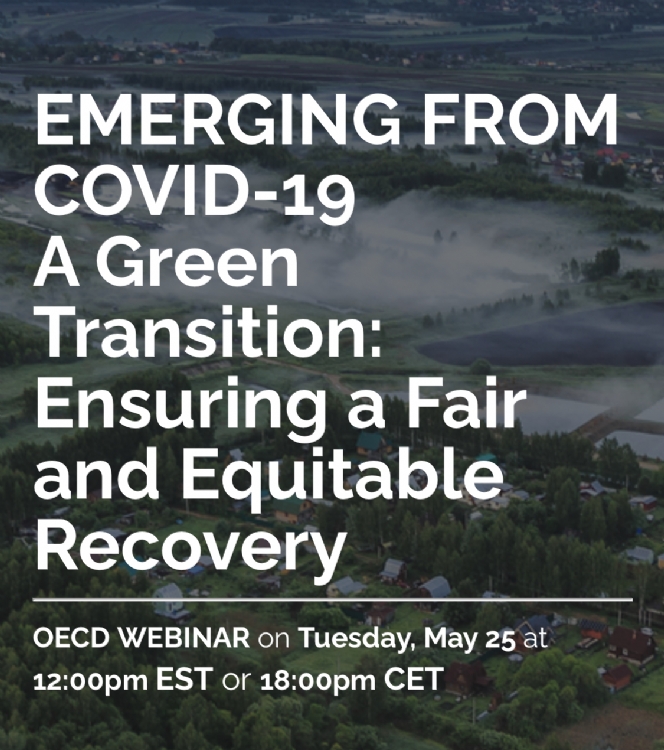Participation of the PABSEC International Secretariat to the OECD Webinar Emerging from COVID-19 - A Green Transition: Ensuring a Fair and Equitable Recovery, 25 May 2021
Mr. Miltiadis Makrygiannis, PABSEC Deputy Secretary General, attended the Webinar titled "Emerging from COVID-19 - A Green Transition: Ensuring a Fair and Equitable Recovery", organized by the Organization of Economic and Cooperation Development (OECD), on 25 May 2021.
The participants, among them several academicians, experts, officers of international organizations and parliamentarians, mainly discussed how governments can implement policies that evenly distribute the costs of a green transition, with a focus on targeting those who are disproportionately impacted by environmental degradation.
Most of the speakers pointed that COVID-19 crisis has amplified the urgency of addressing together the dual challenges of inequality and environmental degradation. With a resurgence from governments to put a green transition at the core of the COVID-19 recovery, it is vital that future policies addressing environmental degradation are both green and people-centered. This is especially important in investment in human capital; through active labour market policies, well-targeted income measures, and upgrading skills to facilitate labour reallocation.
The discussion drew on data and analysis from the OECD report 'The Inequalities-Environment Nexus' and focused on the inequalities-environment nexus by analysing the consequences of the environmental degradation and of environmental policies on four well-being dimensions: health, income and wealth, work and job quality, and safety. Moreover, it has been underlined that the impacts of environmental degradation tend to be concentrated among vulnerable groups and households. At the same, the benefits and costs of environmental policies are also likely to be unevenly distributed across households. In this context, policy packages for an inclusive green transition should aim at (i) mitigating the possible regressive impact of pricing environmental externalities, (ii) investing in human capital and upgrading skills to facilitate labour reallocation, (iii) addressing systemic inequalities with sectoral and place-based policies, (iv) ensuring efficient and responsive governance.

